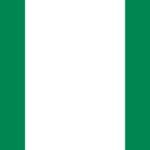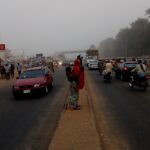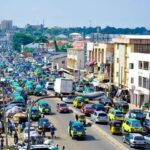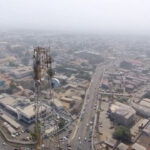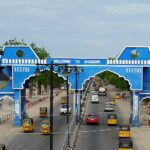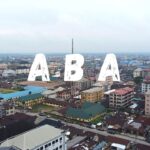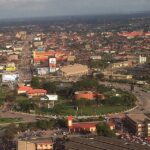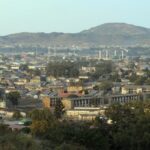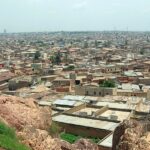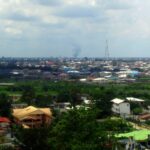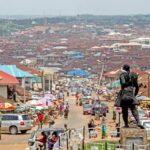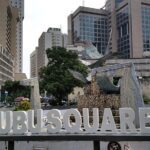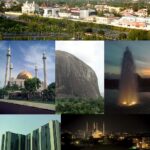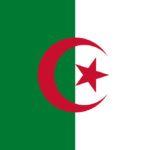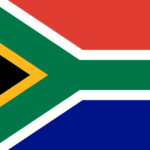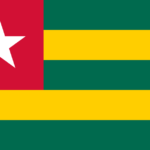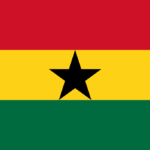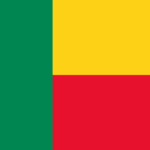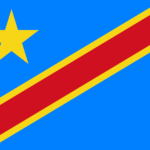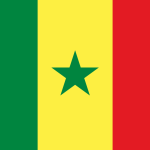Nigeria
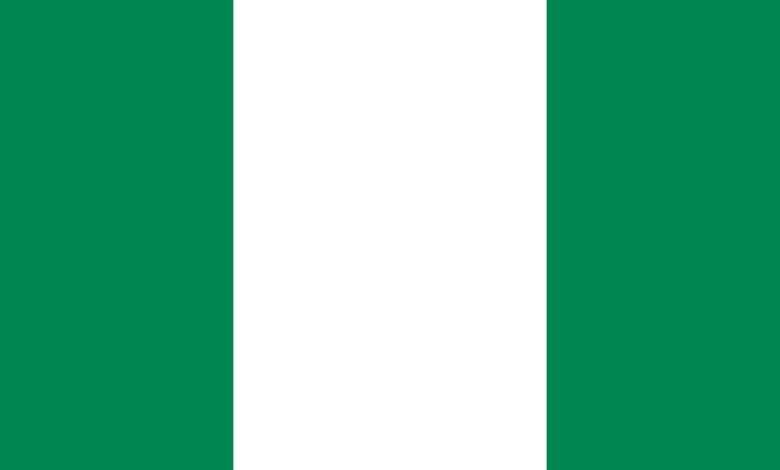
Nigeria is a country located in West Africa. It is the most populous country in Africa, with a population of over 212 million people. Nigeria is a federal republic, with the capital city of Abuja. The official language of Nigeria is English, but there are over 500 other languages spoken in the country.
Nigeria is a diverse country, with a wide range of cultures and traditions. The three largest ethnic groups in Nigeria are the Hausa, the Yoruba, and the Igbo. The Hausa people are the largest ethnic group in Nigeria, and they live mainly in the north of the country. The Yoruba people are the second largest ethnic group in Nigeria, and they live mainly in the southwest of the country. The Igbo people are the third largest ethnic group in Nigeria, and they live mainly in the southeast of the country.
Nigeria is a rich country, with abundant natural resources. The country’s most important natural resources are petroleum and natural gas. Nigeria is also a major producer of agricultural products, such as cocoa, rubber, and palm oil.
Nigeria is a developing country, and it faces a number of challenges, including poverty, corruption, and insecurity. However, Nigeria is also a country with great potential, and it is working to overcome its challenges.
| Capital | Abuja 9°4′N 7°29′E 9°4′N 7°29′E |
|---|---|
| Largest city | Lagos |
| Official Language | English |
| Ethnic groups | 30% Hausa 15.5% Yoruba 15.2% Igbo 6% Fulani 2.4% Tiv 2.4% Kanuri 1.8% Ibibio 1.8% Ijaw 24.9% Other |
| Motto: “Unity and Faith, Peace and Progress” | |
| Anthem: “Arise, O Compatriots“ |
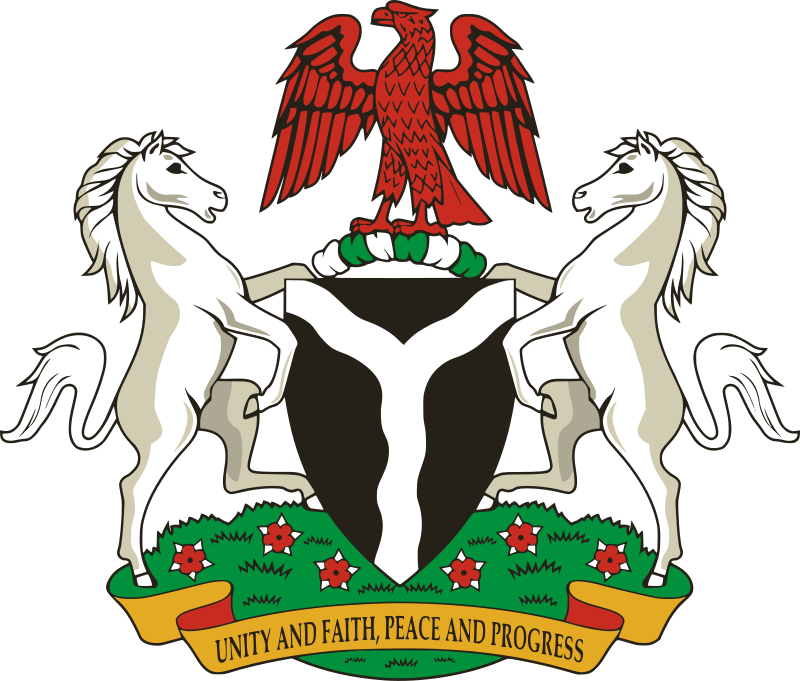
Here are some of the key facts about Nigeria:
- Population: 212 million (2023 est.)
- Capital: Abuja
- Official language: English
- Currency: Nigerian naira (NGN)
- GDP (PPP): $1.4 trillion (2022 est.)
- GDP per capita (PPP): $6,200 (2022 est.)
- HDI: 0.533 (medium human development)
- Literacy rate: 61.3% (2015 est.)
- Life expectancy: 54.5 years (2022 est.)
Nigeria is a complex and fascinating country, with a rich history and culture. It is a country with great potential, and it is working to overcome its challenges. Nigeria is a country to watch in the years to come.
Here are some of the challenges that Nigeria faces:
- Poverty: Nigeria is a poor country, and about 40% of the population lives below the poverty line.
- Corruption: Corruption is a major problem in Nigeria, and it undermines the government’s ability to provide basic services to its citizens.
- Insecurity: Nigeria is a relatively insecure country, and there are a number of armed groups operating in the country.
- Religious tensions: Religious tensions are a problem in Nigeria, and there have been a number of violent clashes between Christians and Muslims.
- Gender inequality: Gender inequality is a problem in Nigeria, and women are often discriminated against in the workplace and in society.
Despite these challenges, Nigeria is a country with great potential. The country has a young and growing population, and it has a number of natural resources. If Nigeria can overcome its challenges, it has the potential to become a major economic power in Africa.
Etymology
Nigeria acquired its name from the Niger River that flows through the country. The term “Nigeria” was introduced on January 8, 1897, by Flora Shaw, a British journalist who later married Frederick Lugard, a British colonial administrator.
The neighbouring Republic of Niger also derives its name from the same river. The exact origin of the name “Niger,” initially applied to the middle sections of the Niger River, remains uncertain. It is believed that the word is a modification of the Tuareg name “egerew n-igerewen” used by the inhabitants residing along the middle stretches of the river near Timbuktu prior to the European colonial era of the 19th century.
History
Early history: Nigeria has a long and rich history dating back to the Paleolithic era. The first known inhabitants of the region were the Nok people, who lived in what is now central Nigeria from around 1000 BC to 300 AD. The Nok were skilled metalworkers and their terracotta sculptures are some of the earliest known examples of African art.
Pre-colonial period: In the centuries following the decline of the Nok culture, Nigeria was home to a number of different kingdoms and empires, including the Kanem-Bornu Empire, the Oyo Empire, and the Benin Empire. These states were involved in trade with other parts of Africa and Europe, and they played an important role in the development of Nigerian culture.
Colonial period: In the 19th century, Nigeria was colonized by the British. The British brought with them their own culture and institutions, which had a profound impact on Nigeria. The British also built roads, railways, and other infrastructure, which helped to modernize the country.
Post-colonial period: Nigeria gained independence from Britain in 1960. Since then, Nigeria has experienced a number of challenges, including military coups, civil war, and economic instability. However, Nigeria has also made significant progress, and it is now one of the most populous and economically important countries in Africa.
- 1804: The Fulani leader Usman dan Fodio establishes the Sokoto Caliphate, which becomes one of the largest empires in West Africa.
- 1885: The British establish the Colony and Protectorate of Lagos.
- 1914: The British unite the Northern and Southern Protectorates of Nigeria to form the Colony and Protectorate of Nigeria.
- 1960: Nigeria gains independence from Britain.
- 1967-1970: The Nigerian Civil War, also known as the Biafran War, is fought between the federal government and the secessionist state of Biafra.
- 1979: Nigeria becomes a republic.
- 1999: Nigeria returns to democracy after a period of military rule.
Return to Democracy (1999-present)
Since 1999, Nigeria has experienced a return to democracy after a turbulent period of military rule and civil war. General Olusegun Obasanjo, a former military ruler who had been imprisoned under the dictatorship of Abacha, became the President of Nigeria after winning the 1999 presidential election. This marked the beginning of the Fourth Nigerian Republic, putting an end to a series of short-lived democracies and military dictatorships spanning 39 years.
Although the elections that brought Obasanjo to power and secured his second term in 2003 were criticized as unfree and unfair, Nigeria made significant strides in democratization under his leadership. A noteworthy development during this period was the parliament’s ability to prevent the president from serving a third term, showcasing the strengthening of parliamentarians in Nigeria despite the president’s influence over the military and security forces.
In the 2007 general elections, Umaru Yar’Adua of the People’s Democratic Party assumed power. However, these elections were widely condemned as seriously flawed by the international community, and Obasanjo himself acknowledged fraud and “shortcomings” in the process. Yar’Adua’s presidency was cut short by his death in 2010, and Vice President Goodluck Jonathan succeeded him as acting president. Jonathan won the 2011 presidential election, which was relatively peaceful and devoid of significant electoral fraud. His tenure witnessed an economic recovery that positioned Nigeria as a leading economic power in Africa. However, it also saw an upsurge in corruption, with substantial sums of money reportedly lost through the national oil company. Additionally, the emergence of the Boko Haram insurgency brought about a wave of terror, including notorious incidents such as the Gwoza massacre and the Chibok schoolgirls kidnapping in 2014.
Prior to the 2015 general election, the largest opposition parties in Nigeria merged to form the All Progressives Congress (APC), led by Bola Ahmed Tinubu. The election, which was the most expensive in Africa at the time, featured former military dictator Muhammadu Buhari as the APC candidate. Buhari’s campaign focused on his reputation as an anti-corruption crusader, and he won the election by a significant margin. This marked the first time an incumbent president had lost re-election in Nigeria. The 2019 presidential election saw Buhari re-elected for a second term, defeating his main opponent Atiku Abubakar.
In the February 2023 presidential election, four candidates competed for the presidency, including Bola Tinubu, Atiku Abubakar, Peter Obi, and Kwankwaso. This election marked the strengthening of democracy, as no former military ruler ran for president, and it showcased the rise of new-savvy democratic politicians. Bola Tinubu emerged as the winner with 36.61% of the vote, while the runners-up, Atiku Abubakar and Peter Obi, contested the result and initiated litigation. Tinubu’s inauguration took place on May 29, 2023.
Note: The summary has been condensed and key details have been retained, but some information may have been omitted for brevity.
The Geography of Nigeria
Nigeria is located in West Africa and is the most populous country on the continent. It is bordered by Benin to the west, Chad and Cameroon to the east, and Niger to the north. Its coast lies on the Gulf of Guinea in the south.
The geography of Nigeria is diverse, with a wide range of different landscapes. The northern part of the country is mostly flat, with a few hills and plateaus. The central part of the country is more mountainous, with the highest point, Chappal Waddi, reaching an elevation of 2,419 meters (7,936 feet). The southern part of the country is mostly made up of coastal plains and swamps.
The climate of Nigeria is also diverse, ranging from tropical rainforests in the south to semi-arid in the north. The rainy season in Nigeria is from April to October, and the dry season is from November to March.
The major rivers in Nigeria are the Niger and Benue. The Niger River is the third-longest river in Africa, and it flows through the centre of the country. The Benue River is a tributary of the Niger River, and it flows through the central and southern parts of the country.
Nigeria is home to a wide variety of plant and animal life. The rainforests in the south are home to many different species of trees, plants, and animals, including gorillas, chimpanzees, and elephants. The savannas in the north are home to a variety of grasses, shrubs, and animals, including lions, zebras, and giraffes.
Nigeria is a country with a rich and diverse geography. The different landscapes, climates, and plant and animal life make Nigeria a fascinating place to visit.
Politics
- Nigeria is a federal republic, with a president as head of state and a two-chamber legislature. The president is elected by popular vote for a four-year term, and the legislature is made up of the Senate and the House of Representatives.
- The two main political parties in Nigeria are the All Progressives Congress (APC) and the People’s Democratic Party (PDP). The APC is the current ruling party, having won the 2015 and 2019 elections. The PDP was the ruling party from 1999 to 2015.
- Other political parties in Nigeria include the African Democratic Congress (ADC), the Labour Party (LP), and the Social Democratic Party (SDP). These parties have a smaller share of the vote, but they still play an important role in Nigerian politics.
- Nigerian politics is often characterized by corruption, violence, and ethnic divisions. These factors have made it difficult to achieve political stability and economic development in the country.
Here are some of the current political issues in Nigeria:
- The ongoing conflict in the northeast of the country, where the terrorist group Boko Haram has been waging a war against the government.
- The high level of corruption in the government, which has impeded economic development and led to widespread poverty.
- The increasing ethnic and religious tensions in the country, have led to violence and instability.
- The need for electoral reform, to ensure that elections are free and fair.
These are just some of the challenges facing Nigerian politics. It is a complex and challenging environment, but there are also many people working to make Nigeria a better country.
National Anthem
The national anthem of Nigeria, “Arise, O Compatriots,” was written by the Nigerian poet, actor, and playwright Felicia Hemans. It was adopted as the official anthem in 1978, replacing the previous anthem “Nigeria, We Hail Thee.”
The National Flag
The National Flag of Nigeria
The Nigerian flag, designed by Michael Taiwo Akinkunmi, was officially adopted at midnight on October 1, 1960, signifying the nation’s independence. Akinkunmi’s design emerged victorious from a nationwide open contest organized by the government, where over three thousand entries were…
Cities, Towns and other places in Nigeria
Maiduguri
Check Voyage info and Guide for Nigeria Here Check the weather in Nigeria Here Maiduguri serves as the capital and largest city of Borno state in northeastern Nigeria. Positioned along the seasonal Ngadda (Alo) River, this city is situated near…
Benin City
Check Voyage info and Guide for Nigeria Here Check the weather in Nigeria Here Benin serves as the capital city of Edo state, situated in southern Nigeria, approximately 40 kilometres north of the Benin River. This city stands at the…
Kano
Check Voyage info and Guide for Nigeria Here Check the weather in Nigeria Here Kano is the capital of Kano state in northern Nigeria, situated along the Jakara River. Founded by a blacksmith named Kano, the site shows evidence of…
Port Harcourt
Check Voyage info and Guide for Nigeria Here Check the weather in Nigeria Here Port Harcourt is a vibrant and bustling city in southern Nigeria, situated along the Bonny River in the heart of the Niger Delta. It’s the capital…
Abuja
Check Voyage info and Guide for Nigeria Here Check the weather in Nigeria Here Abuja is a planned city built in the 1980s to replace Lagos as the capital of Nigeria. It is located in the centre of the country,…
